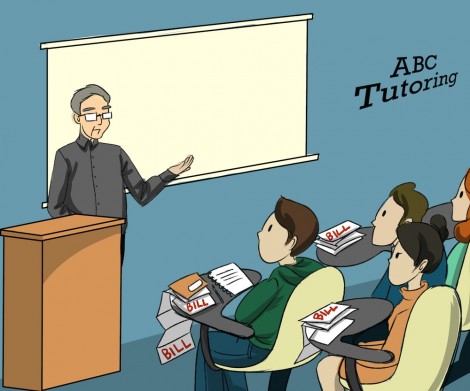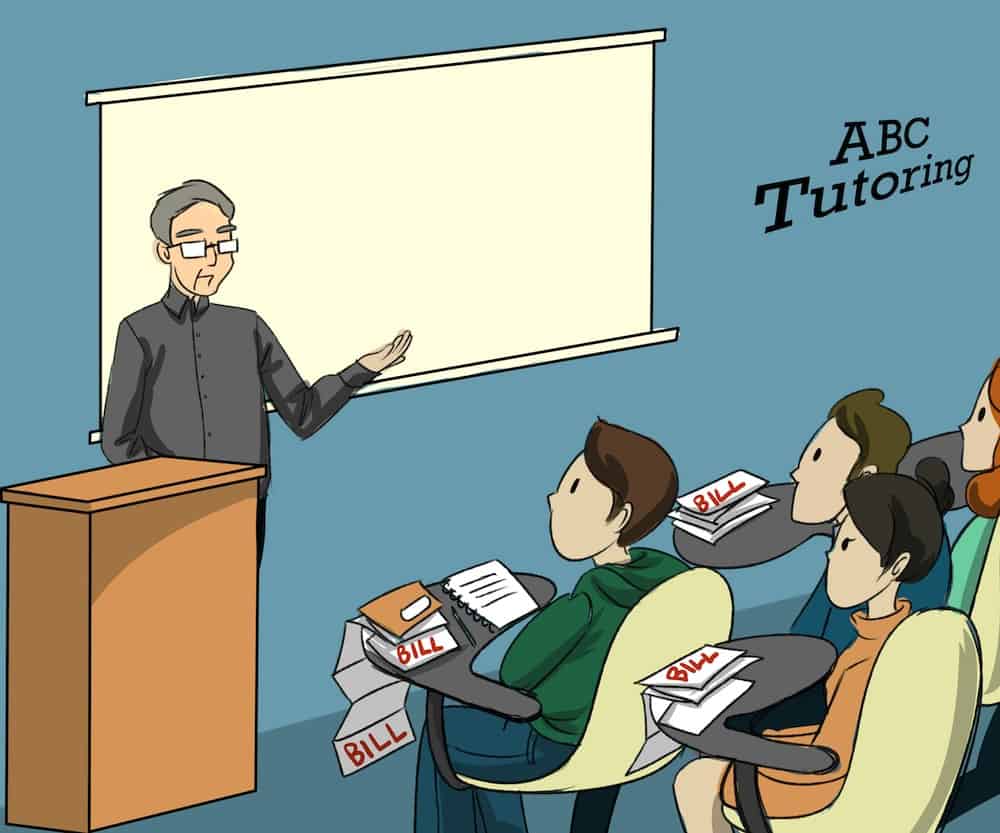As a first-year student, Chelsey Konya struggled in Economics 105. Finding that she was not able to learn effectively in lecture, she stopped going to economics classes after the first few weeks. Around exam time, Konya remembered a pamphlet she received in the first week of class for a tutoring service called ECOMAN. Konya paid for the service, aced her exam, and passed the course.

NANCY JI/THE VARSITY
Konya is one of many students who opt to use services offered by private tutoring companies such as ECOMAN, Toronto Life Sciences (TLS), and SOS Tutoring Inc. Among other services, these companies offer group tutoring sessions designed around many introductory math, science, and economics courses at U of T. While Konya had very positive things to say about her experience, perspectives on the effectiveness and value of these services vary widely among faculty and students.
Though outside tutoring companies are not affiliated with the university, they often rent space from U of T and run their sessions on university property. Laurie Stephens, Director of Media Relations for the university did not answer questions about the tutors saying: “We cannot comment on the effectiveness of services provided by external service providers.”
Concerns about “crash course” learning model
Some professors interviewed by The Varsity expressed concern about “crash course” sessions offered by private tutoring companies. “Some of these services try to teach students to memorize a lot of things without understanding,” said mat137 course coordinator and lecturer Alfonso Gracia-Saz. He added that a crash course focusing on memorization and pattern matching will not prepare a student for a well-designed exam, which would focus on conceptual understanding.
“Learning occurs best when it is drawn out over time, e.g., through a series of multiple learning sessions, not when it is crammed into a single session,” said PSY100 professor Ashley Waggoner-Denton. Shawn Tian, president of the Arts & Science Students’ Union (ASSU), stressed that it is every student’s responsibility to stay on top of their work. He argued that viewing tutoring sessions as a “failsafe” for not paying attention in class is ineffective. A crammed review session is unlikely to help a student who hasn’t stayed on track throughout the semester, he said.
Aaron Benshabat, president of SOS Tutoring disagrees. He feels there is a place for crash courses in the university system: “There are some courses where you’re not going to be able to have the ideal amount of interaction,” said Benshabat. “Let’s say if you have questions and are in a larger classroom… the university setting as a whole is more conducive to a crash course or an exam review session.” Meanwhile, Collin Nguyen, regional director of TLS, argued that labelling exam review sessions “crash courses” is unfair. He stated that most review sessions span over the course of a few weeks, giving students ample time to consolidate their knowledge. He added that the services offered by TLS are meant as a complement for lectures and official university aid resources, rather than as a replacement for them. ECOMAN declined to comment for this article.
Third-year student Albert Qin attended an ecoman course in his first year. He argued that despite the fact that each concept is taught from scratch, time constraints render the course ineffective if a student goes in without sufficient background knowledge. Second-year student Fatema Khan agreed, adding that ecoman and tls provide short cut answers to difficult questions. Maria Khalil, also in second-year, said that she found group tutoring sessions very effective for cementing difficult concepts in math and chemistry. Not all students praised the tutoring companies though. Third-year student Danny Zaidman was more critical: “I think those tutoring companies are tailored for students who are too lazy to do the work on their own. If you want to have somebody tell you some basic information in monotone, then I guess SOS, ECOMAN, and TLS are for you,” he said.
Quality of teaching material questioned
Another common concern of faculty members is the course material used by private tutoring companies. “When I was a TA, I was handed a booklet of questions and solutions from one of these sessions and asked to explain them,” said mat137 instructor Lindsey Shorser. “The booklet was rife with errors, missed steps, and unreasonable questions. Unless the material is official university material, we cannot guarantee its accuracy, relevance, or quality,” she added. Dwayne Benjamin, a professor of economics and chair of undergraduate affairs, said that his department is concerned about outside companies using copyrighted material, such as notes and solutions from professors, without their approval.
Nguyen confirmed that his service does not use any course notes or packages from the university. He added that TLS courses are taught with up-to-date and relevant information. “We have the most up-to-date textbook in order for [the instructors] to understand and relate to what the students are going through,” he said. Benshabat said that SOS Tutoring uses its own material. He added that instructors are vigorously filtered to make sure that they have taken the same course as the one they are teaching.
Free aid sources under-utilized
Students reported varying degrees of satisfaction with free university aid. Khan said that while the free mathematics and economics aids offered at U of T are effective, limited hours make it difficult for students to get all their questions answered. Qin said that while he made use of the university’s free aid sources, he also found outside tutoring sessions useful. Khalid claimed that peer mentors in the economics department are unable to answer simple ECO100 questions, and that she did not find the economics study centre useful. Eric Chung, a second-year student, argued that while the university offers effective aid services, private companies market their services more effectively.
“I think there is an idea that if the price of some product is higher, then the quality of the product must be higher. This might lead students to believe that tutoring services are more effective than the resources provided by U of T,” said Peter Samuelson, a post-doctoral fellow in the department of mathematics. Economics professor James E. Pesando stressed that the aid centre unique to ECO100 as well as the peer mentoring program available through the department, are under-utilized.


